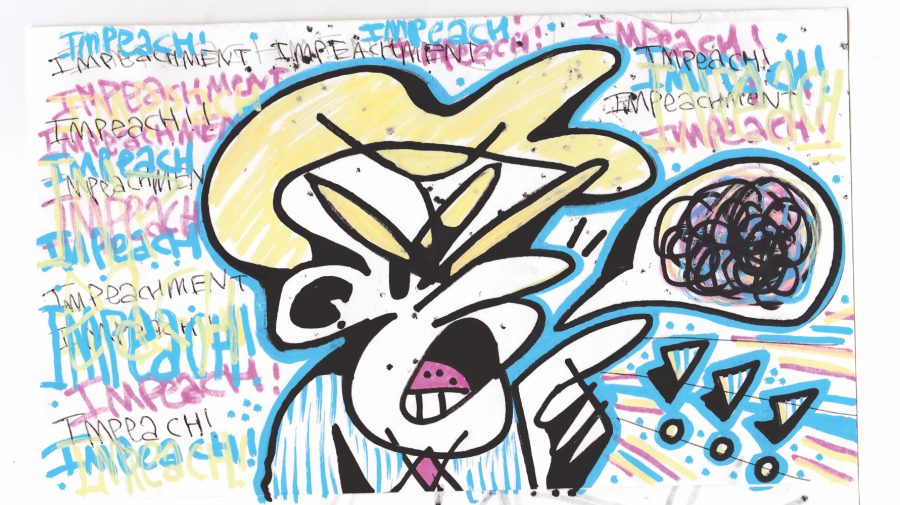On Oct. 22, President Donald Trump concisely tweeted his true feelings toward the impeachment inquiry in his personal diary, Twitter. Seemingly irritated at justified efforts by House Democrats to investigate the withheld U.S. military aid to Ukraine for possible political gain, Trump tweeted that the inquiry was a lynching “without due process or fairness or any legal rights.”
Always one for controversial exaggerations in the face of legitimate constitutional procedures, it was a matter of time before Trump escalated Democrat “witch hunts” to full-blown “lynchings.” Yet, this week’s rendition of #TrumpThoughts not only highlighted the president’s repetitive insensitivity and disrespect to the black community, but undermined one of the most shameful and racist periods in both historical and contemporary America.
Following the abolishment of slavery and adoption of Jim Crow laws designed to maintain racial segregation, the Tuskegee Institute reports that about 4,743 people-mainly African American, were lynched between 1882 and 1968. While lynching victims were dubiously accused of murder and rape, most were not given trials, stripped of whatever little legal rights they had, and subjected to physical torment at the hands of whites playing the judge, jury and executioner.
Such accusations served as excuses to rationalize the real reasons whites lynched blacks- to punish those who challenged Jim Crow laws, and enforce and maintain the racial hierarchy with whites at the top. Trump will be entitled to due process if the impeachment ever culminates in a Senate trial, complete with bipartisan evidence reviewal and right to counsel.
His rights to liberty and property will be protected but most importantly, Trump will keep his life whether he is impeached or not. The same cannot be said for 14-year old Emmett Till who was beaten, shot and thrown into the Tallahatchie River with a 75-pound metal fan around his neck for supposedly whistling at a white woman. By comparing himself to a lynch victim, Trump’s disgusting usage of the word erases its racial context, reducing it to a word anyone can casually throw around when an act is seemingly unfavorable to them.
However, Trump is not the only one guilty of this ignorance. Democrats like 2020 Presidential nominee Joe Biden and Rep. Gregory Meeks both referred to former President Bill Clinton’s impeachment as a “lynching,” The Washington Post stated.
Yet, they acknowledged the term’s racial significance, with Biden apologizing for its usage and Meeks as a black man understanding its historical circumstance.Trump unsurprisingly did not. As a man who called white supremacists “very fine people” and still believes the Central Park Five are guilty after exoneration, he cannot sympathize with others.
Overtly racist acts take more subtle approaches to remain acceptable in society. Using words without acknowledging their background as politicians have done, claiming one is not racist but denouncing equal opportunity actions anyway, or even presenting brown paper dolls “hanging by their necks from strings” as an art display in Brooklyn, as seen in The New York Daily News, all point to the establishment of a new type of racism. Therefore, words and actions will always matter, and that should not be forgotten.






